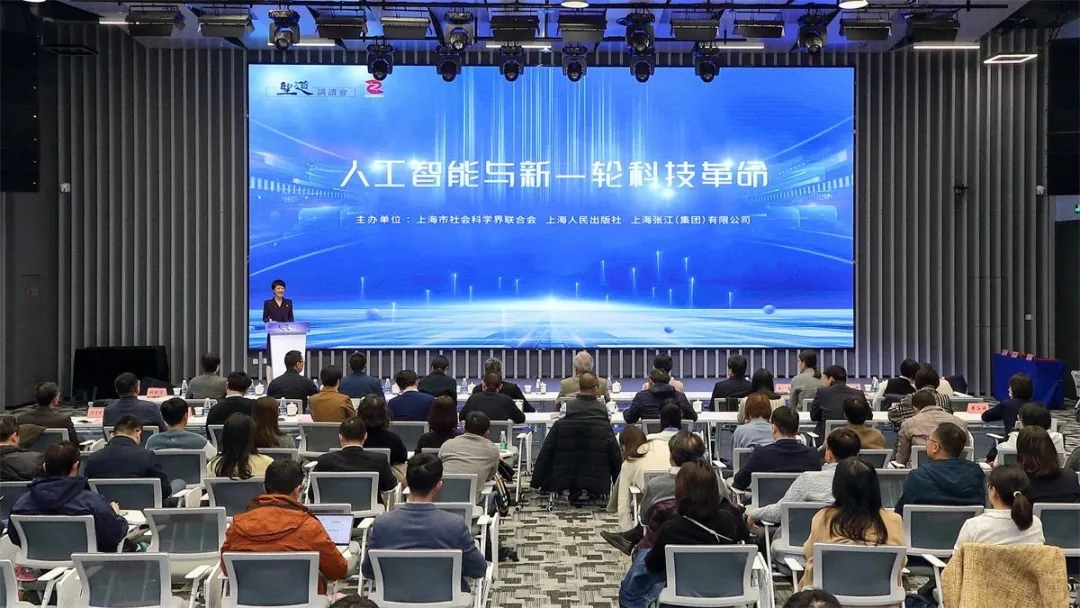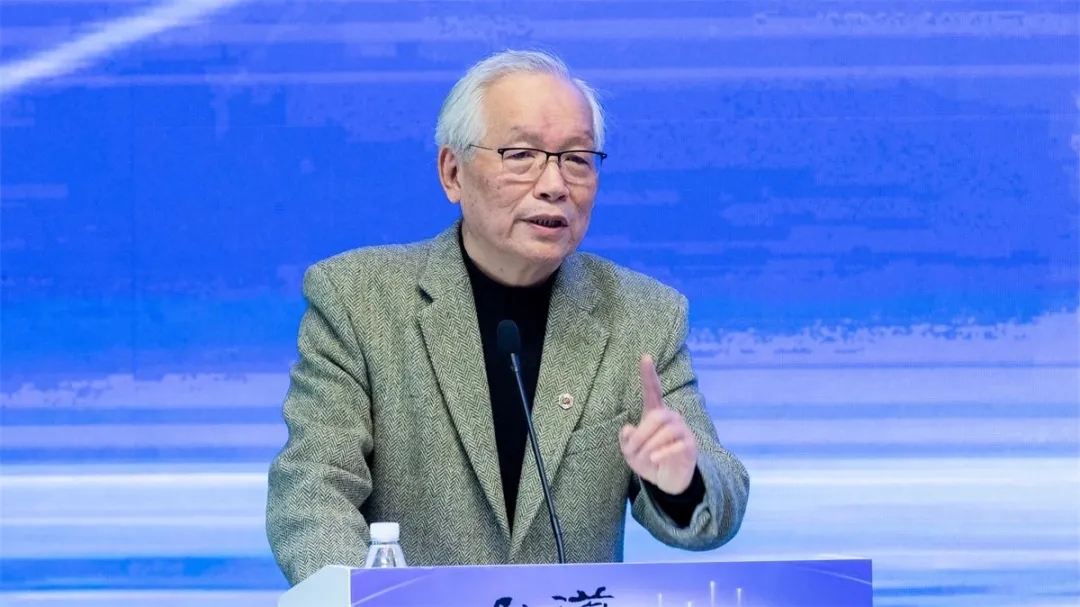Wangdao Reading Club hosts a theme-based event: AI and the New Round of Technological Revolution

On March 13th, the Shanghai Federation of Social Science Associations, in collaboration with Shanghai People’s Publishing House and Shanghai Zhangjiang (Group) Co., Ltd., hosted the Wangdao Reading Club Zhangjiang Innovation Forum on “AI and the New Round of Technological Revolution” at the Zhangjiang Robot Valley. The forum bodies forth the Federation’s “desire and design” to fully tap Shanghai’s resources in social sciences, industries, and scientific research to serve the development of new productivity.

Federation Chairman Wang Zhan, based on the book “AI and the New Round of Technological Revolution” that he had co-authored, reviewed the development history of Shanghai's new technology industry. He described the overall framework of this round of AI technological innovation and industrial transformation using “the new technological revolution pyramid” diagram, which consists of three levels: artificial intelligence, new infrastructure and platforms, and scenario-based industries. He pointed out that Chinese enterprises harbor strong innovative vitality, which is a tremendous driving force for China’s economic advancement. Now that a new round of technological revolution is raging on, it is essential to further activate their courage and spirit of pioneers, explorers and entrepreneurs, and, more important, provide comprehensive support in legal, policy, and other aspects. During the development of AI, special attention should be paid to scientific ethics to promote the coordinated development of productivity and production relations.
The year 2024 marks the 10th anniversary of the Wangdao Reading Club. Established by the Shanghai Federation of Social Science Associations and Shanghai People’s Publishing House, the Club adheres to the motto “Read, Read, and Read to Learn, Live and Love”. It has been continually pushing important books, providing thought-povoking lectures and promoting interactive exchanges, bridging the Eastern and Western cultures, and fostering dialogues between past and present. The club has invited renowned scholars such as Hao Tiechuan, Xiong Yuezhi, Ge Zhaoguang, Sun Ganlu, Wu Jiang, and Su Zhiliang to engage in a series of high-end academic dialogues addressing topics such as "What is Chinese culture?" "Why could Shanghai become the cradle of light?” “Rule of Law in China: Historical Logic and Future Directions" and "A comprehensive View of the Construction of a People-Oriented City." These events aim to create a platform for intellectual exchange, both extensive and intensive.

